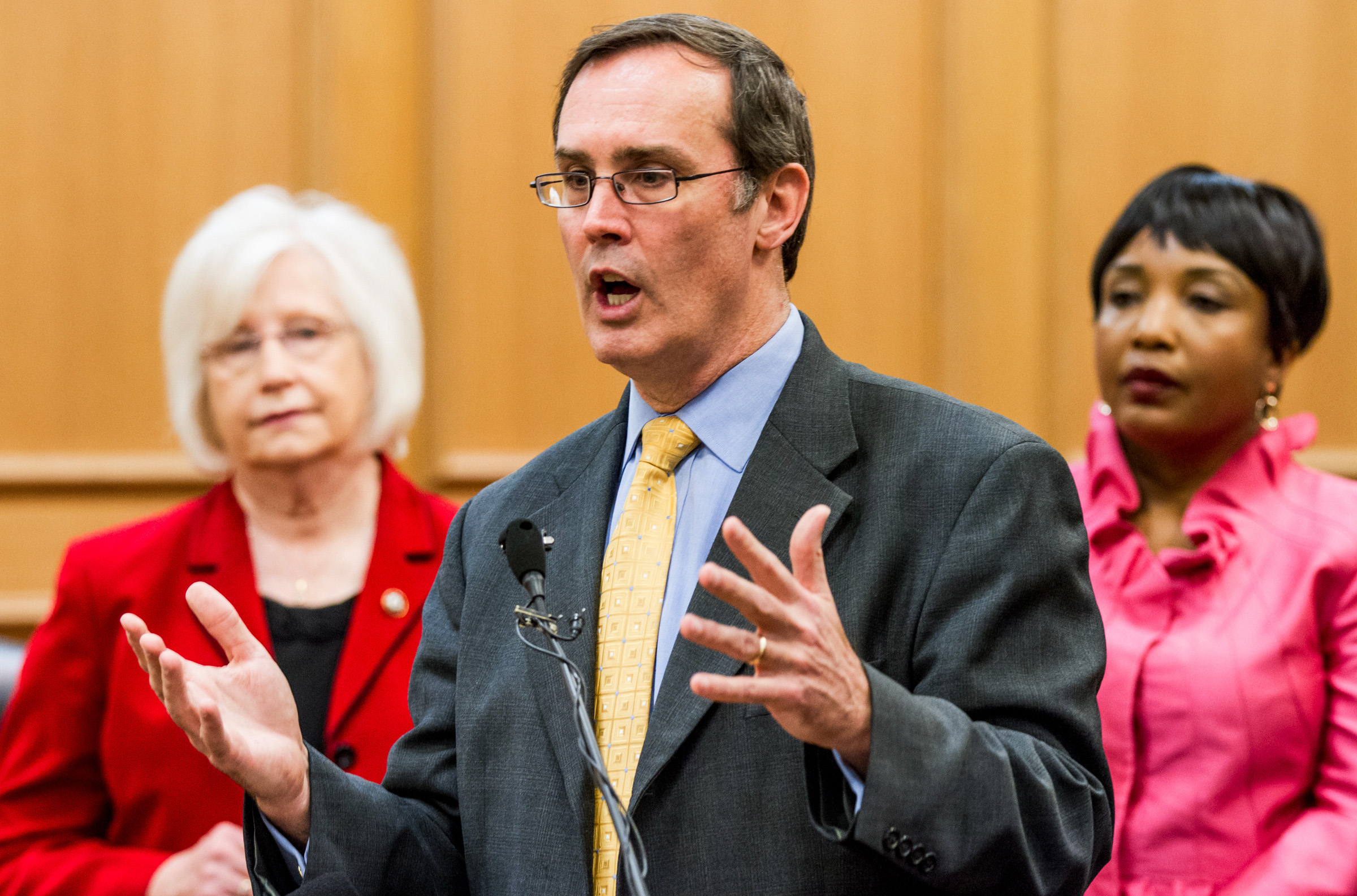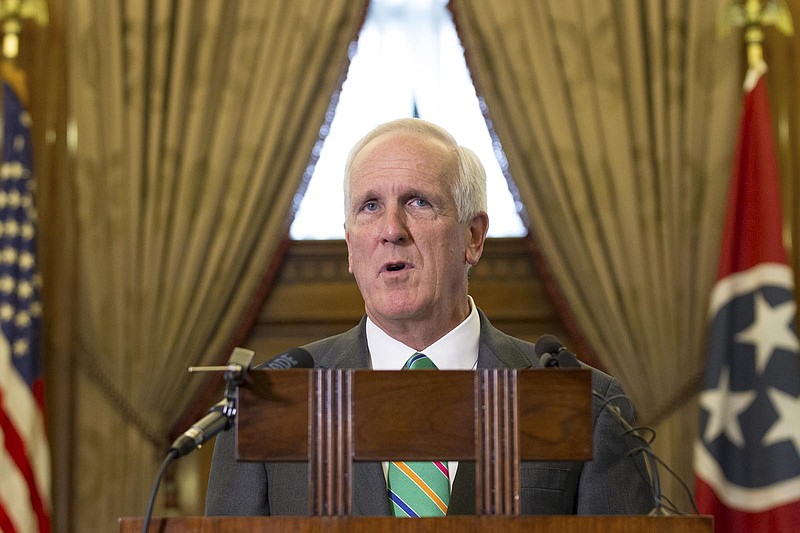Feel for the tiny, legitimate minority of people - less than 0.3 percent of the United States population - who are confused about their sexual identify. They are the ones caught between the protection of traditional values and a political movement anxious to sweep up everything in its path.
They have been swept up like pawns by a political campaign designed to capitalize on the U.S. Supreme Court's decision last summer to allow same-sex marriage.
Strike while the iron is hot, the thinking goes.
The Human Rights Campaign has said as much. Its stated goal is passing a lesbian/gay/bisexual/transgender nondiscrimination bill in Congress, and to do so it wants to pass nondiscrimination legislation in cities and states en route.
Indeed, the organization spent more than a half million dollars in Houston last year to uphold an ordinance that banned discrimination, but voters overwhelmingly overturned the ordinance when it was spun as gender bathroom legislation.
Which brings us to the Tennessee legislature's effort to head off such a bill at the pass.
A bill currently being debated in Nashville - now rolled to later in the session - would "require that a student [in a public school or college] use student restroom and locker room facilities that are assigned for use by persons of the same sex as the sex indicated on the student's original birth certificate."
That is what has been the practice as long as there have been student restrooms and locker room facilities, but now the political movement behind the 0.3 percent of the population that is affected wants it mandated that transgender students be allowed to use the bathroom of the sex corresponding to their gender identity rather than their birth gender.
Those who favor traditional values and modesty do not want their children sharing a bathroom with, undressing in front of, or showering in the presence of persons of another sex.
That's perfectly understandable, considering that some students forced to share the "transgender" label may just be confused about their sexual identity.
On the side of the political movement opposing traditional thought in the Volunteer State, using similar blackmail threats similar to what have been made elsewhere, are businesses afraid to lose customers and the usual Hollywood/music crowd desirous of pushing its agenda.
Tennessee Attorney General Herbert Slatery also weighed in Monday, saying the state could be seen as violating the federal Education Amendments of 1972 if "the U.S. Department of Education, which is charged with enforcing Title IX, interprets Title IX to require that transgender students be given access to restrooms and locker rooms consistent with their 'gender identity' instead of their anatomical gender."
 David Fowler, president of the Family Action Council of Tennessee, speaks at a press conference at Legislative Plaza in Nashville, Tenn., on Tuesday, March 5, 2013. Fowler spoke in favor of a bill to strip to Vanderbilt University of its police powers if it doesnt change its nondiscrimination policy for student groups. At rear are Republican Sen. Mae Beavers of Mt. Juliet, left, and Vanderbilt professor Carol Swain. (AP Photo/Erik Schelzig)
David Fowler, president of the Family Action Council of Tennessee, speaks at a press conference at Legislative Plaza in Nashville, Tenn., on Tuesday, March 5, 2013. Fowler spoke in favor of a bill to strip to Vanderbilt University of its police powers if it doesnt change its nondiscrimination policy for student groups. At rear are Republican Sen. Mae Beavers of Mt. Juliet, left, and Vanderbilt professor Carol Swain. (AP Photo/Erik Schelzig)As such, he said, the state is in jeopardy of losing federal Title IX funding if the law is passed.
However, David Fowler, a former state senator from Chattanooga and president of the Family Action Council of Tennessee, said no one "needs to run around like their pants are on fire" afraid federal funds are about to be withheld if the law passes.
Not until a state loses its arguments in court can such money be withheld, he said, and then a state has 30 days to comply. And no money can be withheld during the process or retroactively, he said.
For the vast majority of the population, this issue will never confront them. But those who want things to remain as they are - and want the bill to pass - must understand they're fighting a losing battle under this Supreme Court, this president and the next president if a Democrat is elected in November.
Unisex bathrooms or family bathrooms are sensible solutions to the problem, but that's not what the political movement is seeking. It is seeking for those persons who were born with one gender but identify with the other to use the bathroom that corresponds to their gender identity.
And making an argument about the state losing business over the bill sounds high-minded but is only a way to avoid the real issue.
Unfortunately, the political climate signals that the choice is likely to come down to whether the bill should be defeated now or until a court overturns it.
It stinks, but, since one national election eight years ago meant much more than electing a president, that's where we find ourselves today.
